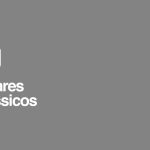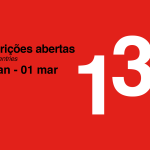
-
7 de May de 2019
Special Screenings
“Brazil has lived in my imagination ever since I was small”, says the great Portuguese filmmaker Rita Azevedo Gomes, whose bold new film, The Portuguese Woman (2018), will have its Brazilian premiere in the Special Screenings section of the eighth edition of the Olhar de Cinema – Curitiba International Film Festival. “A land as large as the world; a land of contrasts, serenities, and afflictions all at once. To be able to pass a film of mine in any part of this country always gives occasion for me to be observed from a partly unknown point of view, which in turn always makes me fascinated and puts me in a curiously attentive state. After all, it is no accident that some of the finest commentators, critics, and audience members that I know are Brazilian.”
Rita Azevedo Gomes will attend Olhar as a jury member, as well as to present the screenings of The Portuguese Woman. The film tells the story of a wealthy young woman in Medieval Italy who strives to settle into her new homeland while her husband stays away at war. The film, which screened at festivals in Mar del Plata and Berlin, takes place in past times, but addresses audiences directly with theatricalized methods that make it feel urgently and movingly present.

The Portuguese Woman is one of five programs in this year’s Special Screenings section. Another program offers two new films from Brazilian masters of experimental cinema. Seduction of the Flesh (2018), which premiered at Locarno last year, is Júlio Bressane’s most recent fiction feature, and its delicate unveiling of a female widowed writer’s life story continues one of the greatest living Brazilian filmmaker’s efforts to dig into humankind’s mysteries. Bressane’s film screens with the fifth entry in Carlos Adriano’s found-footage Untitled series – this one called Untitled #5: A Tune of Nones at Noon (2019) – which won the shorts competition last month at the Brazilian festival It’s All True and which lyrically intercuts material from Yasujiro Ozu’s last film with a train ride taken with a new love.
“My Untitled films arise from a vital and desperate need made fulfill-able thanks to a poetic form of filmmaking, a constellation-montage of luminous points”, says Adriano. “I perceive my approach as a way both of accounting and of chanting (an enchantment against discouragement, a dazzling fight against helplessness) for an abysmal and irremediable human condition whose simple issues such as love, desire, hunger, matter, death, and leitfossil loom forever in front of us. I perceive in Júlio Bressane’s recent films an extraordinarily sensitive form of reflection on these same things. A Bressane work employs a sophisticated repertoire of cultural signs to treat visceral drives and passions with intellectual rigor and unpacked carnality, in the interest not only of understanding them, but of gaining understanding of oneself.”

Another Special Screenings program honors a living legend of Brazilian and world cinema, who has worked with Bressane as well as with directors including Joaquim Pedro de Andrade, Glauber Rocha, Rogério Sganzerla, and herself. The Woman With Her Own Light (2019), directed by Sinai Sganzerla, pays glowing tribute to the director’s mother, Helena Ignez, by allowing the resplendent and still-active filmmaker and theater and film actress to recount her life in her own words. As Helena speaks, the film presents a wealth of archival material from the more than six decades that she has spent as an important artist and activist. Olhar de Cinema will host the film’s world premiere.
“The Woman With Her Own Light is a film about a character, a woman, and her films as an actress and director from the days of Cinema Novo until present times,” says Ignez herself. “The result is strong, feminist, and free from preconceived notions. Sinai told me that the film would not be about her mother. At that moment, I became certain that the film would be interesting and good.”
Further homage is made to a recently deceased American female film artist, Barbara Hammer (1939-2019), within a program of six short films collectively called Barbara Hammer Dialogues. The program presents high-resolution digital copies of two of the prolific Hammer’s best-known films – Dyketactics (1974) and Double Strength (1978) – as well as Deborah Stratman’s marvelous short tribute to Hammer, Vever (for Barbara) (2019), which premiered this year at Berlin shortly before her death. These films will screen in dialogue with three contemporary Brazilian shorts – Barbara Cabeça’s Wolf Mouth (2018), Érica Sarmet’s Latifundium (2017), and Clarissa Ribeiro’s X-Manas (2017).
“Barbara Hammer made more than 100 films in over 40 years before passing away this March after a long battle with cancer”, says Olhar de Cinema programmer Carla Italiano. “Even more so than being a tribute to the filmmaker– who was responsible for a pioneering form of lesbian experimental film – the program approximates some of Hammer’s 1970s films with relevant short works by contemporary Brazilian directors, as well as with Deborah Stratman’s homage. Our intention is to locate Hammer’s aesthetic ideas in contemporary film, with special attention paid to non-normative modes of cinematically leading with LGBTQ sexualities and bodies. Altogether, it gives a mosaic of images and moments in ways that we can openly call queer.”
The final program in Special Screenings is the section’s longest, and perhaps its biggest surprise. Patrick Wang’s joyous and generous work of fiction A Bread Factory (2018) consists of two two-hour-long films that will be shown at Olhar sequentially, with an intermission. It takes place at a small-town arts center based in a remodeled bread factory in the state of New York and unveils the adventures of people who make theater, poetry, cinema, and other kinds of works there and mount acts of resistance against capitalist efforts to shut down the space. Despite featuring familiar actors such as Tyne Daly, James Marsters, and Janeane Garofalo in its cast, A Bread Factory hasn’t yet gotten the attention that it richly deserves. It is one of the most remarkable American films of recent years, a film that sings in favor of independent artistic expression.
“Independent art is very easy to talk about, but very hard to actually support,” says Wang. “More and more political and economic forces discourage it, but a pocket survives here and there. I am very happy to have found this pocket in Curitiba and to welcome it into our fellowship of bread factories.”







